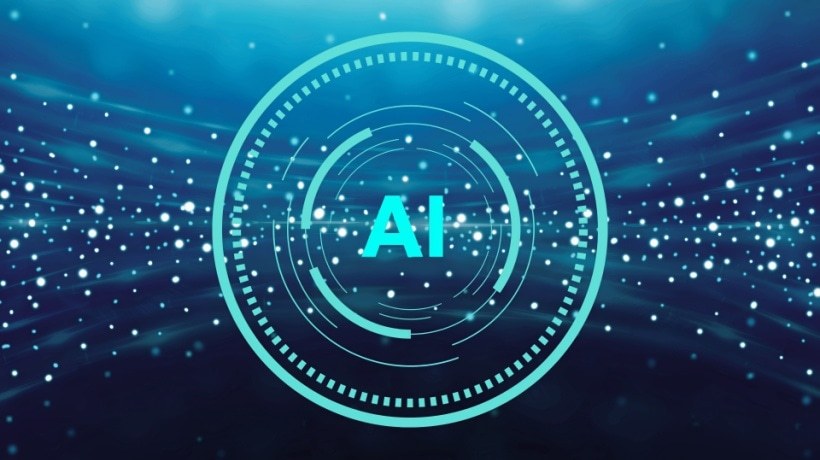Enhancing The Professionalization And Effectiveness Of eLearning AI
The field of eLearning has grown rapidly in recent years, with more and more students opting to take online courses and programs. Artificial Intelligence (AI) has the potential to revolutionize eLearning by providing personalized and efficient learning experiences for students. The purpose of this article is to explore how AI is being used to enhance the personalization of eLearning, and to discuss the potential challenges and considerations in implementing AI in eLearning [1].
Overview Of The Current State Of eLearning And The Role Of AI
eLearning has become increasingly popular in recent years, with more and more students opting to take online courses and programs. The use of technology in eLearning has made it more accessible and convenient for students, but there is still room for improvement in terms of personalization and effectiveness. AI has the potential to revolutionize eLearning by providing personalized and efficient learning experiences for students.
Personalization Of eLearning Through AI
AI can be used to personalize the learning experience for individual students by analyzing data on their learning style, progress, and interests. This can be used to create personalized curriculum and learning materials, as well as to provide personalized feedback and support.
Examples Of AI-Powered Personalization Features In eLearning Platforms
- Adaptive learning algorithms that adjust to the student's learning style and pace
- Personalized curriculum and learning materials based on student data
- Personalized feedback and support based on student progress and performance
- Chatbots and virtual assistants that provide individualized assistance to students
- Personalized recommendations for further learning resources and materials
By using AI to personalize the eLearning experience, students can receive tailored instruction that better meets their needs and interests, resulting in a more efficient and effective learning experience. However, implementing AI in eLearning also raises a number of challenges and considerations that need to be carefully evaluated before implementation.
AI-Assisted Assessment And Evaluation
AI can assist in the assessment and evaluation of student learning by providing automated scoring and feedback on assignments and quizzes, as well as by analyzing student data to identify areas of weakness and strengths. This can help educators to quickly and efficiently evaluate student progress and make adjustments to the curriculum as needed.
Examples Of AI-Powered Assessment And Evaluation Tools In eLearning Platforms
- Automated scoring and feedback on assignments and quizzes
- Analysis of student data to identify areas of weaknesses and strengths
- Predictive analytics to identify at-risk students and provide early intervention
- Chatbots and virtual assistants that provide personalized feedback and support
AI-Enhanced Content Creation
AI can be used to enhance the creation and delivery of eLearning content by automatically generating personalized learning materials, such as customized quizzes, flashcards, and summaries. Additionally, AI can be used to analyze student data and adapt the content to better meet the needs and interests of individual students.
Examples Of AI-Powered Content Creation Tools In eLearning Platforms
- Automated generation of personalized quizzes, flashcards, and summaries
- Adaptation of eLearning content based on student data and interests
- Automated summarization of text to make it more easily digestible
- Chatbots and virtual assistants that provide personalized learning materials based on student data
By using AI to assist in the assessment and evaluation of student learning, and enhance the creation and delivery of eLearning content, educators can save time and resources while providing personalized and effective learning experiences for students. Just like students use online calculators, videos, and other things to learn online.
Challenges And Considerations In Implementing AI In eLearning
Implementing AI in eLearning can be costly and requires significant technical expertise. Additionally, there are important ethical and privacy considerations when it comes to collecting and analyzing student data. There is also a need for transparency, explicability, and accountability for the AI systems used, to ensure that the results are fair and unbiased. Additionally, there is a need for proper training of educators and students on how to use the AI-powered tools, and how to interpret the results.
Benefits Of AI In eLearning
1. Personalization
AI can be used to personalize the learning experience for individual students by analyzing data on their learning style, progress, and interests. This can be used to create personalized curriculum and learning materials, as well as to provide personalized feedback and support.
2. Automated Assessment And Evaluation
AI can assist in the assessment and evaluation of student learning by providing automated scoring and feedback on assignments and quizzes, as well as by analyzing student data to identify areas of weakness and strengths.
3. Content Creation
AI can be used to enhance the creation and delivery of eLearning content by automatically generating personalized learning materials, such as customized quizzes, flashcards, and summaries. Additionally, AI can be used to analyze student data and adapt the content to better meet the needs and interests of individual students.
4. Improved Efficiency
AI can automate repetitive and time-consuming tasks, such as grading and providing feedback, freeing up educators to focus on other important aspects of teaching.
5. Identifying At-Risk Students
AI can help educators identify students who may be at risk of falling behind and provide early intervention.
6. Cost-Effective
AI can help to reduce costs associated with eLearning by automating certain tasks and making the learning experience more efficient.
7. Intelligent Tutors
AI-powered chatbots and virtual tutors can provide students with instant assistance and feedback, which can increase their engagement and motivation in learning.
8. Immersive Learning
AI-powered Virtual Reality and Augmented Reality can provide students with immersive and interactive learning experiences that can be more engaging and effective than traditional methods.
Future Outlook For AI In eLearning
As AI technology continues to advance, it is likely that we will see an increased use of AI in eLearning. In the future, we can expect to see more sophisticated AI-powered personalization, assessment and evaluation, and content creation tools that will enhance the effectiveness and efficiency of eLearning. Additionally, AI will play a role in the development of Virtual Reality and Augmented Reality in education, providing immersive and interactive learning experiences.
References:
[1] e-Learning Or eLearning? Confusion: It's All In A Word









